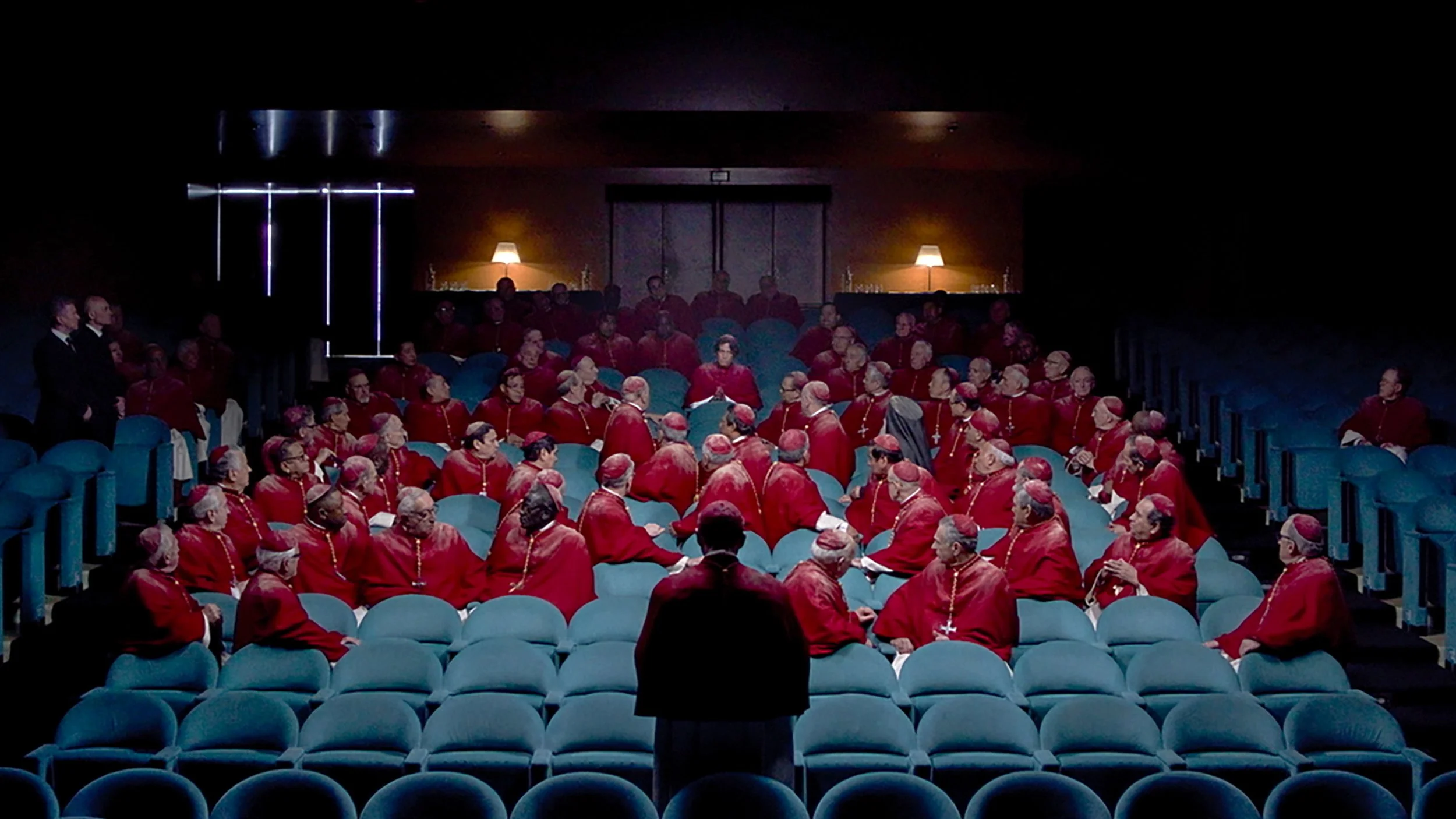Inside Volker Bertelmann's Score for 'Conclave'
Hannes Caspar/Pitch Perfect PR
The election of a new pope is not what comes to mind when most people think of a political thriller, but Edward Berger’s Conclave exemplifies the best of what the genre has to offer. The film is Berger’s follow-up to his highly decorated remake of All Quiet on the Western Front (2022), so who better to compose the score for Conclave than Berger’s frequent collaborator, Volker Bertelmann?
Bertelmann won his first Academy Award for his work on Berger’s All Quiet on the Western Front and hopes to pick up his second with the score for Conclave. The film begins with the death of the current pope and the ensuing papal election, overseen by Dean Thomas Lawrence (Ralph Fiennes). As the cardinals descend on the Vatican to participate in the vote, clear factions of political and social ideologies make themselves known. This election could see the Catholic Church returning to its ancient roots or adapting to the changing climate of progress. The tense election is underscored by Bertelmann’s harsh orchestrations that speak to the scandals, secrets, and drama that emerge.
Check out the full interview with Volker Bertelmann below, or continue scrolling for the remainder of the article.
The papal election and Catholicism are deeply rooted in tradition. When asked if his score ever resembled something more akin to a Mass, Bertelmann laughs. “No. I was raised very strongly religious, so I know a lot about church music and the rituals. I felt it's not, it wasn't the music’s purpose to be like that. The film needed something that, in a way, creates a spiritual idea and describes the spiritual, idealistic idea of the church, or of religion in general.”
“The score should be modern and also a little awkward because the main topic of the film is more like a thriller and you don't want to get too deep into sappy or religious music.”
This modern, jarring score is often at odds with the beautiful images on screen. Conclave was shot in buildings filled with history, and its story is steeped in rituals that have existed for hundreds of years. Bertelmann had to compose a score that effectively worked against what viewers saw on the screen to support the film’s underlying sense of secrecy.
To create this dichotomy, Bertelmann focused on the friction that exists between religious idealism and what he describes as “...human disaster. I thought these two areas needed to be very strong because then you understand both sides of the film.” There’s the procedure of the election that is extremely rehearsed going up against the fallacy of power-hungry men. These two truths exist within the same world, and it was up to Bertelmann to ensure that audiences never forget what’s beneath all this pomp and circumstance.
Bertelmann often creates a sense of tension with his music through the use of arpeggios. For those not musically inclined, Bertelmann breaks it down.
“Arpeggios are broken chords, in a way. They actually describe a chord, but at the same time they do a very quick movement. Just by adjusting triplets or sixteens or by making the tempo faster, you can create tension. Plus, if you layer them, you can actually play triplets against sixteenth notes and suddenly, you have a weird, rhythmical crunch in a way. At the same time it creates chaos.”
Bertelmann goes on to discuss the role of arpeggios in dance and EDM songs and says they aren’t far removed from what he composed for Conclave. “In techno or trance music, where you can slowly wind the tension up to an area where you feel like you can't breathe anymore, and then the bass drops. This is what I did in Conclave, but I would say it's maybe the reverse bass drum drop. It's actually building, building, building, and then you do a loud hit and suddenly there's emptiness and silence. You just have somebody breathing, all lonely in the room.”
“That obviously helps the film so much because you feel the movement in the people. What happens in their mind while they're going through the process of who is the next leader.”
The heart of Bertelmann’s score is an instrument that’s likely unfamiliar to most. Even Bertelmann had not really worked with the Cristal Baschet prior to composing Conclave. The instrument was developed in 1952 and is an organ of sorts that’s made of glass rods. The musician rubs the differently tuned rods with wet fingertips. Bertelmann chose the Cristal Baschet because of its “awkward synthesizer” sounds. He was thrilled by the opportunity to build an entire score around an instrument that was unknown to him prior to this film.
“It starts very crystally and then it begins suddenly to create these resonances that are otherworldly in a way,” he explained. “It was, in a way, standing for the idealistic religious approach.”
Bertelmann’s score is a vital part of Conclave. His rich, stringed orchestra clashes with the Cristal Baschet to breathe deeper life into the social, cultural, and political reckoning at the core of Conclave.




